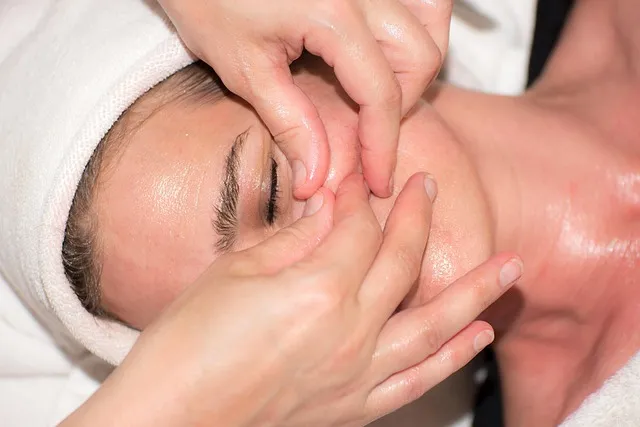Eczema is a skin condition that can result in redness, inflammation, and irritation. Eczema is not contagious. However, it develops cracks on the skin, which can lead to infections. Anyone from any age group and type can develop Eczema, and one in ten people has the possibility of developing skin diseases. The beginning of dermatitis can result in 80% of people suffering from Eczema.
But Is Eczema contagious? Yes, Environmental or genetic factors can lead to Eczema, like rashes or flaking on the skin. People with severe cases of Eczema can be susceptible to infections like asthma and allergic rhinitis. In this article, we will emphasize the fact that Eczema is contagious. And how one can take care of their Eczema.
Is Eczema contagious?
No, Eczema is not contagious and can't be spread to another person. However, in many cases, Eczema infects the skin by developing cracks and causing skin infections to develop over Eczema. Primary or secondary infections can also lead to skin itching and can allow the condition to become contagious. People with Eczema are prone to viral infections, which can make not Eczema but viral infections susceptible to other diseases.
You can also read: How to Get Rid of Fungal Infection in Hands?
Can one catch Eczema from another person who has it?
So you can not catch Eczema from anyone else, or another person can not see Eczema from you. If you are worried about Eczema, you should focus on treating the condition, as people with Eczema are more susceptible to viral infection because Eczema produces skin cracks. Only then can the disease be contagious, and the people with Eczema should become free from the doubt that they can spread it to their family members or friends.
How will Eczema end up being passed on?
Eczema is not contagious, and there can be zero way being around someone with Eczema will suddenly cause the development and be transferable for skin conditions. So Eczema is not infectious, but skin infections are contagious. So think of it like this, if you are suffering from Eczema and are scratching your skin constantly, that can break down the skin and open the topmost layer. This Eczema opens the skin for infections that can result in contagious diseases.
The inflammation that underlies it can increase the risks of conditions and can increase the chances if there is an increase in skin infections. An intact outer layer of skin is necessary to prevent harmful pathogens like bacteria, viruses, and fungi from getting into those cracks. If the broken skin becomes colonized, then the microorganisms can result in colonized infections.
Also Read: The Best Ways To Manage And Treat Lip Eczema
Is Eczema contagious with treatments
Although there is no cure for Eczema, still numerous treatments can help alleviate the symptoms. The treatment will vary depending on the kind and severity of the Eczema. People with Eczema can consult with their dermatologist to build an appropriate or specialized treatment plan.
Medications
- Some medications for Eczema are topical corticosteroids, which can help reduce swelling, itching, and inflammation. Different corticosteroids like creams, sprays, ointments, or lotions can help reduce calcineurin inhibitors.
- Antihistamines and emollients can also help reduce itching and swelling and moisturize the skin, preventing dryness.
Therapies
Many therapies can be helpful for Eczema, including wet wrap therapies like phototherapy, and a doctor can advise that the treatment is suitable for someone. One therapy is moist therapy which includes wrapping a damp cloth and gauze around the affected areas. People can also use emollients and corticosteroids wrapped in the medicine. Different wavelengths can also use phototherapy to reduce inflammation from severe Eczema.
Also Read: White Spots in The Skin: Causes And Treatments
How to prevent Eczema?
Tips to prevent and reduce eczema flares like-
- Taking a bath in lukewarm water for about 10 minutes prevents moisture loss from the skin.
- Use a gentle cleanser and avoid brushing with harsh scrubbers.
- Avoid rubbing the skin with a towel, and avoid rough towels.
- Apply moisturizing or tropical medications according to a doctor's advice.
- Avoid scratching the skin and keep your nails short
- Manage stress.
Also Read: 10 Best skin whitening creams
What triggers can flare up Eczema?
Eczema can be flared up with the following triggers-
- Dry weather
- Fabrics and clothing materials
- Makeup and skin products
- Smoke pollutants
- Soaps and detergents
- Stress and emotional well being
- Touching something you are allergic to
What are the coping tips for Eczema?
The psychological aspects of Eczema are one of the most challenging parts of dealing with the condition. It can sometimes feel like people are noticing it and judging more than they are. As a result, other people can begin to isolate themselves and become depressed and anxious over the disease. In case you feel self-consciousness and the skin symptoms like the disease and healthcare provider. There can be other treatments that can opt for you to explore.
Another way of dealing with the feelings is by educating yourself, and others can be true and natural to Eczema. If there is an increase in the sense of empowerment, then the volunteer group can also help. Other people can help deal with the concerns of a self-conscious eczema patient. It will be best to build a support network to deal with the situations of eczema patients.
Also Read: Are Winters Bad For Eczema? Know Your Options Before Your Condition Aggravates
The bottom line-
The conclusion is that Eczema is not contagious. However, if you have Eczema and are worried about itchy, dry skin development in other people, you can check with your doctor. You can also take several precautions, like washing hands regularly and keeping the skin from sun exposure or environmental pollution.
The only way of developing a skin infection is when you have gotten a condition like a viral infection. Take care of your Eczema, follow your doctor's treatments and instructions and try to relieve Eczema as soon as you can. This treatment will help ease Eczema soon, and the chances of developing the infection will also be reduced.
Also Read: 13 best eczema creams in 2023
Frequently Asked Questions
Is Eczema contagious?
No, Eczema is not contagious. Even the active rash on the body can not be moved on to someone else, and if you have gotten Eczema, there is a high probability that there is another skin condition you have but not Eczema. Eczema can sometimes also leave the skin with cracks that can cause infections.
Will Eczema spread to other people?
No, it is impossible to spread Eczema to anyone, which means the infected skin will not be distributed to other people. Some people can assume that Eczema can be applied within families, but that is, again, a myth.
Why is Eczema not contagious?
Eczema is not caused by any infection of microorganisms like viruses, bacteria, and other pathogens that can't be caused or be infected by other humans. You can not get Eczema directly by touching someone or touching something that the person with Eczema has used.
Is eczema hereditary or contagious?
This skin condition can not be inherited from the parents or members of the family. In addition, the gene can not cause Eczema, and Eczema can be activated in the presence of environmental allergens and triggers.

Reviewed by







